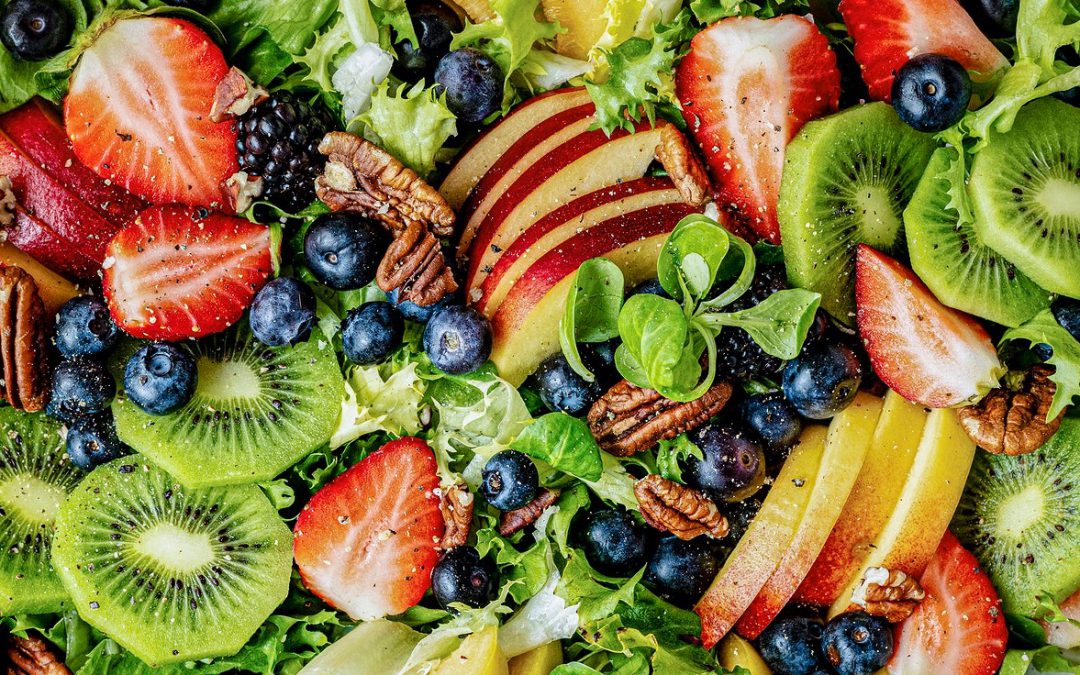There are so many unique facets involved with mental health recovery. One of those facets teaches clients how to alter harmful patterns of behavior, especially learning how to promote healthy habits over harmful ones.
When people think of habits, they might consider instances where people turn to drugs or alcohol to self-medicate. They might also consider random things like fingernail biting when stressed, engaging in negative self-talk, or driving too fast when angry. What about nutritional habits?
Some people might eat too much or too little when they are experiencing mental health distress. Some people might neglect keeping their body hydrated because their body is in constant fight-or-flight mode. Whatever the case might be, there is no question that mental health affects nutrition and, in the same sense, nutrition affects mental health.
Nutrition And Mood
At large, nutrition is about what you do for your body to bring it nourishment and energy. Nutrition is associated with having a healthy and balanced diet, but it also addresses relationships between diet, health, and disease.
Food is what fuels the mind and the body. Nutritious foods- such as fruits, vegetables, and whole grains- help our bodies to grow, repair, and function well in our daily lives. As for the mind- consider the term “brain food.” Nutrients from healthy foods improve cognitive health and mood, promoting brain function.
An important factor of nutrition that plays a role in contributing to a person’s mental and physical wellness is consistency. When a person is not consistent with the things they are putting into their body, and they are not regularly engaging in exercise, they are more likely to experience mood fluctuations because of their unbalanced diet.
When a person sticks to a healthy diet of food with moderate amounts of exercise, they are setting themselves up for less fluctuation in mood as well as improved levels of energy and concentration. Healthier patterns of eating are also linked to better stress management, improved sleep, and overall better mental wellbeing.
Nutrition and Depression
For a brain to engage in primal functioning, meaning functioning at its best, it must consume premium fuel. Over time, any brain can experience damage from consistently eating unhealthy or non-nutritional foods. Certain substances, such as foods high in sugar, are considered less-than-premium fuel, meaning that they will be harmful to the brain.
While your body becomes used to unhealthy dieting, it is likely to experience challenges with emotional regulation- specifically, issues with managing stress. Over time, increased sugars and impaired brain function can lead to worsening issues with mental health, such as mood disorders and depression.
To prevent mental illness, especially illnesses that are characterized by emotional dysregulation, and to heal from mental illness, start by refining and altering your diet.
Understanding the Five Nutritional Food Groups
While there is no one food that is going to boost your mental wellbeing, consistently eating a variety of food from the five food groups will create major improvements in your mind and body. These five food groups include:
- Fruits
- Vegetables
- Grains
- Protein
- Dairy
Fruits and vegetables give us fibers that are essential in supporting positive gut health. Gut health plays a key role in supporting our overall health. Fruits and vegetables also give us key vitamins, minerals, and antioxidants that support brain health. It is recommended that we aim to consume two servings of fruit and five servings of vegetables a day.
Whole grains also help with gut bacteria. They also provide healthy fats that improve brain functioning and carbohydrates that create a steady supply of fuel for our brain throughout the day.
Protein includes lean meats, fish, and eggs. Proteins are crucial for providing our brain with chemicals it needs to positively influence our mood. Fish and fish oil, alongside nuts, also give us necessary vitamins and healthy fats that support positive mental wellbeing.
Dairy products have probiotic qualities that also improve gut health. Again, gut health is important because it influences our mood and overall mental wellbeing.
One of the foods not listed as a part of the five food groups, but is essential in mood stability and health, is hydration. Water not only prevents dehydration but also prevents the distressing symptoms that dehydration can cause. It also helps to cleanse the body from harmful toxins and is an essential source of nourishment for the mind.
The purpose of these food groups is to encourage people to intake specific vitamins, minerals, and other nutrients that help to establish a well-balanced diet. Food groups help to simplify healthy dieting recommendations by focusing on specific foods instead of specific nutrients.
The link between nutrition and mental health is unavoidable. It is important to understand the consequences that an unhealthy or unbalanced diet can have on your physical and mental health. Start to pay attention to how eating different foods can make you feel, especially when you eat a variety of healthy foods consistently for several weeks. Eating better will not only help you to feel better physically, but it will also help you to feel better mentally and emotionally. West Coast Recovery Centers recognizes the important role that nutrition can play on physical and mental wellness. It is important that you work to establish healthier patterns of heating and staying hydrated not only during your recovery, but also in your daily life. Our treatment experience will help you to work on your harmful habits, especially when it comes to nutrition. For more information about our treatment facility, give us a call today at (760) 492-6509.




